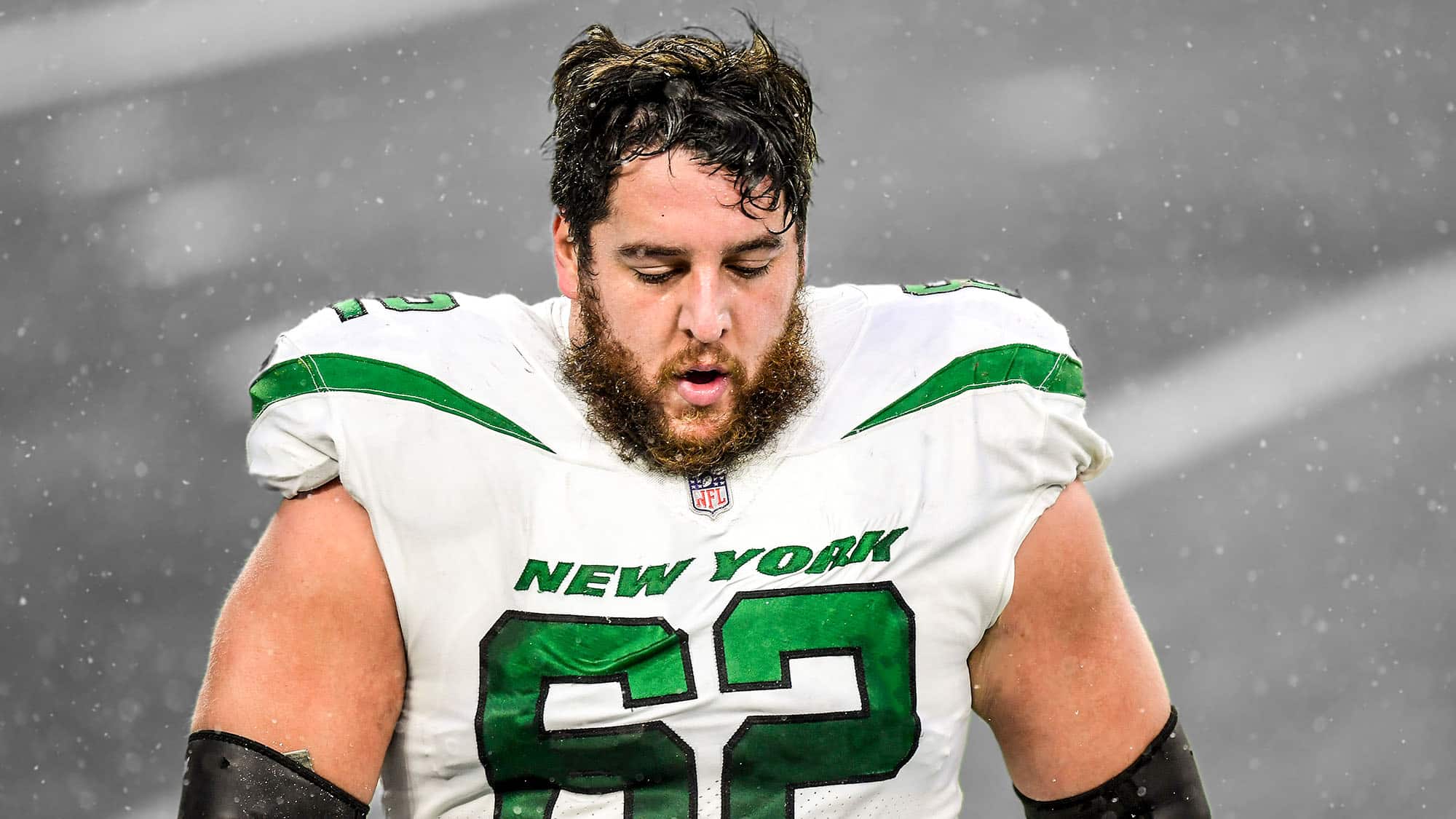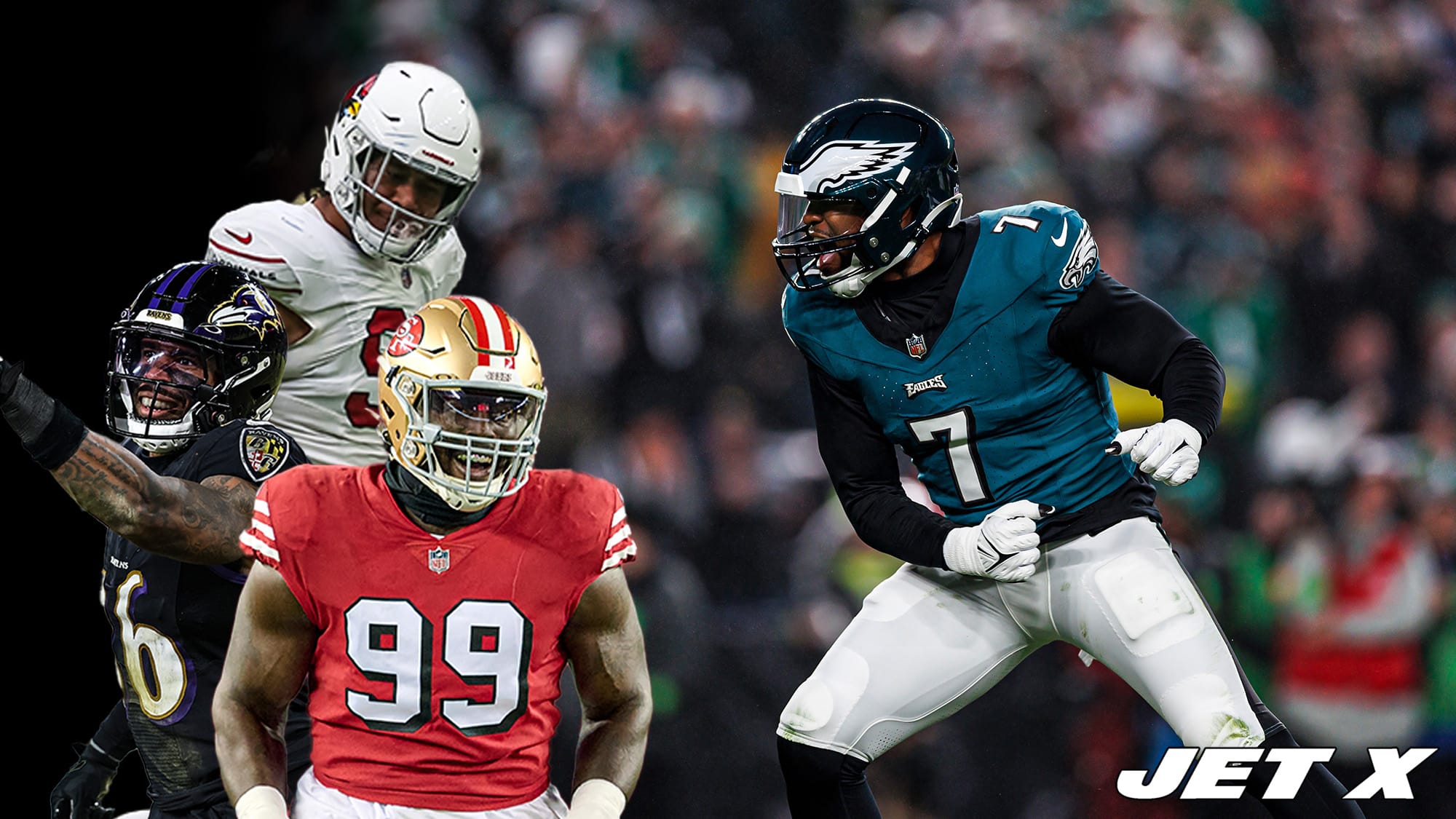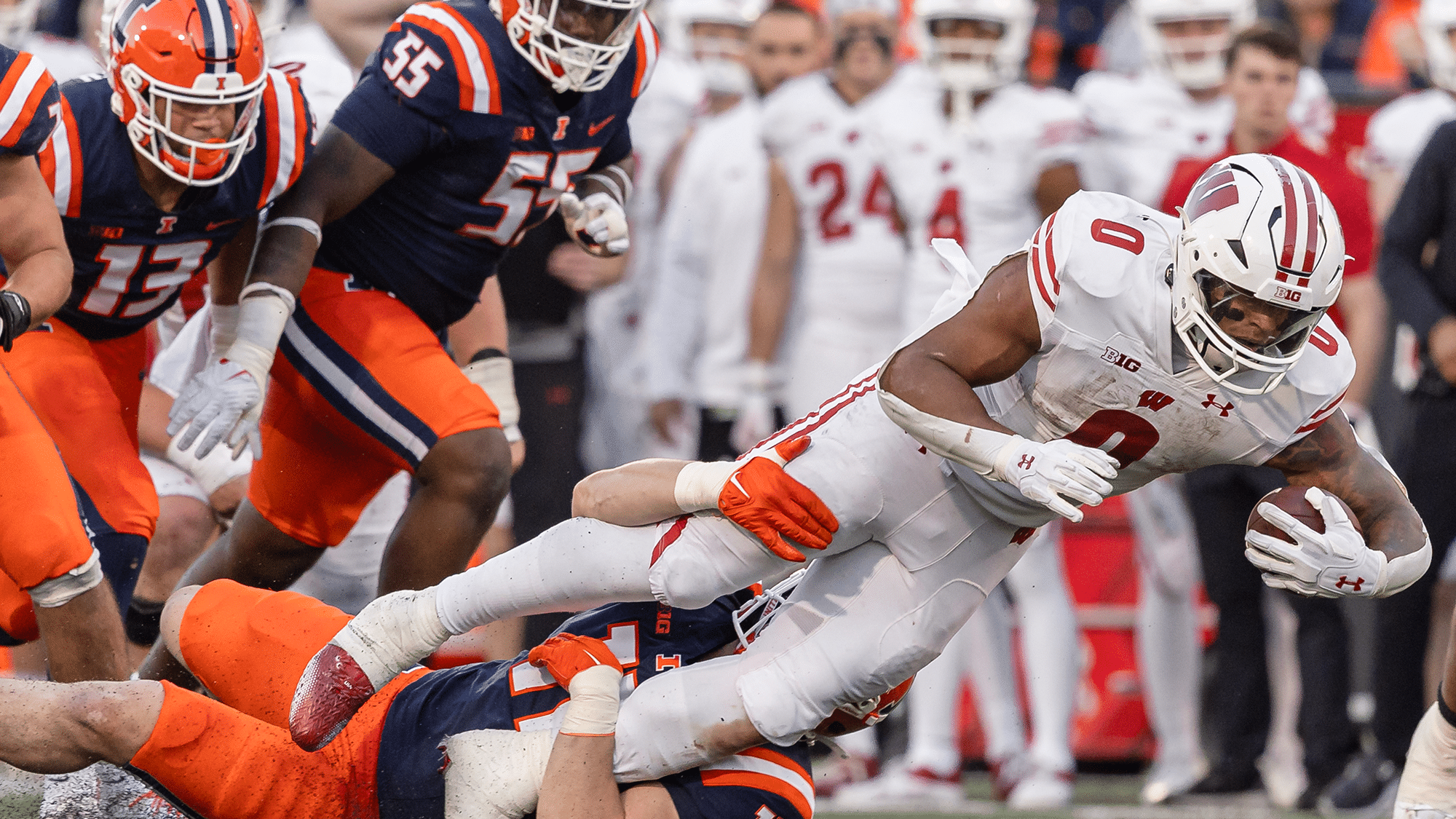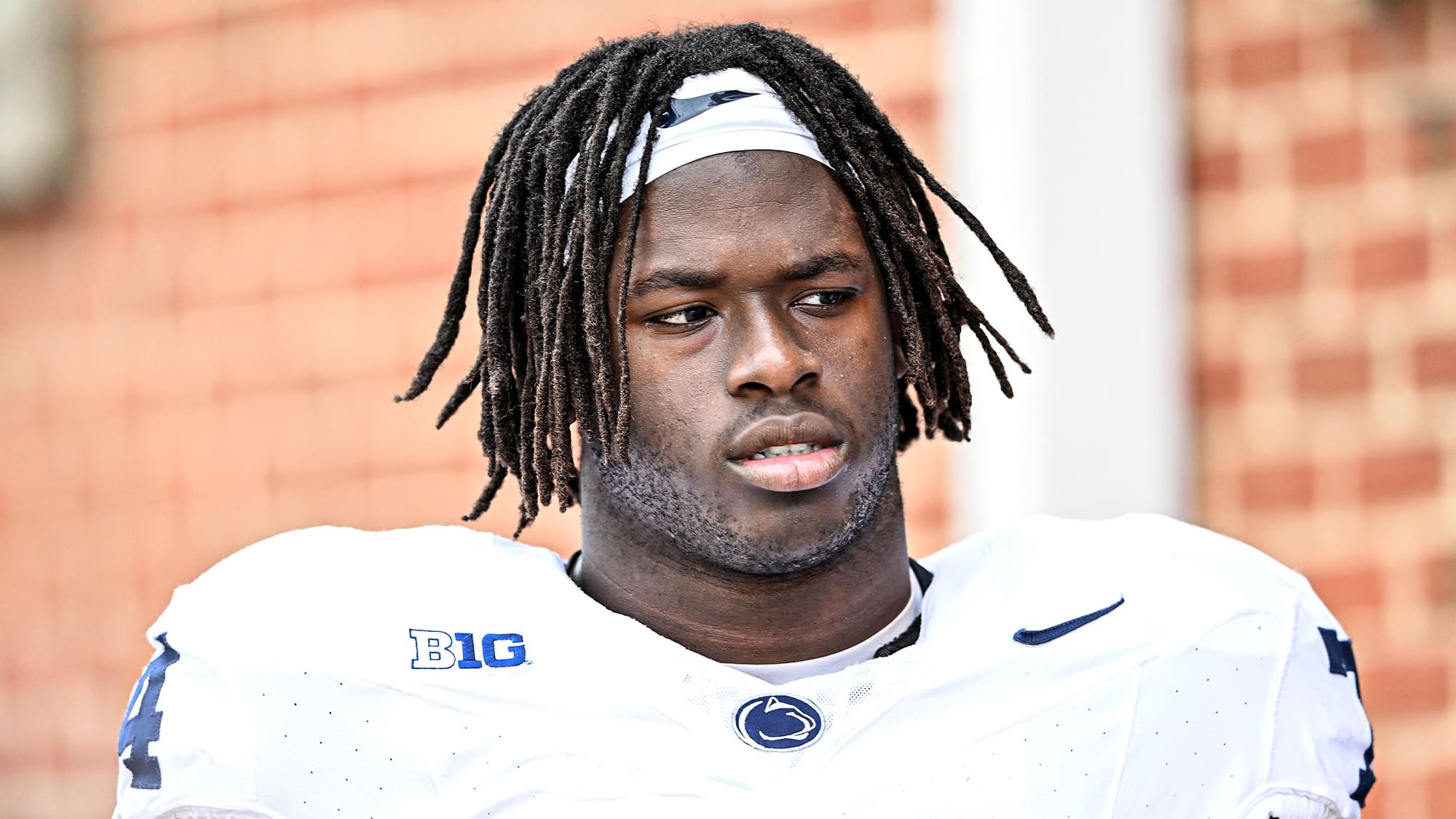Zach Wilson was not the only culprit in the New York Jets’ loss to New England
Let’s make one thing clear: The New York Jets‘ home-opening loss to the New England Patriots was far more the fault of Zach Wilson than anybody else.
The rest of the team played well enough to win. If Wilson played at the level he did in Week 1 against the Carolina Panthers, the Jets would have likely won the game.
Jeff Ulbrich‘s defense was excellent, the run game was consistently productive, and even the special teams unit did some good things. There was an immense number of positives for the Jets to take away from the game outside of Wilson’s performance.
With that being said, the Jets’ non-Wilson output was not perfect. There were still a few stinkers that deserve attention.
The following five individuals played a role in allowing New England to pull away despite the Jets outplaying them in many areas.
Greg Van Roten
Pro Football Focus credited Jets right guard Greg Van Roten with allowing seven pressures against New England. That total led all guards in Week 2 and made up nearly half of the 16 pressures attributed to the Jets’ offensive line.
Collectively, the other four offensive linemen got their act together in pass protection after a brutal season debut. George Fant, Alijah Vera-Tucker, Connor McGovern, and Morgan Moses combined for a 64.2 pass-blocking grade at PFF, which would have ranked 15th out of 32 offensive lines in Week 2.
Instead, the unit ranked 24th out of 32 with a 58.3 pass-blocking grade.
Corey Davis
Corey Davis was not the reliable go-to weapon that he looked like in Week 1. He snatched 2-of-5 targets for 8 yards and zero first downs. Two of the passes thrown his way resulted in interceptions.
Most notably, Davis allowed a slightly-high pass to sail through his hands and into the chest of Adrian Phillips for a New England takeaway, Wilson’s second consecutive interception in as many attempts to begin the game. The first was also intended for Davis.
Davis also struggled to separate against New England’s physical man coverage, hence why he only drew five targets over 26 routes run.
Quincy Williams
With Jamien Sherwood sidelined, Quincy Williams took over next to C.J. Mosley as the Jets’ second every-down linebacker. He replaced Del’Shawn Phillips, who had taken over for Sherwood in Carolina after he went down early in the game.
The issues that plagued the former third-round pick during his two years with the Jaguars persisted. He tied for the team lead with two missed tackles and was victimized in coverage as he allowed 5-of-5 passing in his direction for 48 yards and three first downs.
That stat-line does not even include a 32-yard pass to Hunter Henry on a busted coverage in which Williams and Bryce Hall appeared to both be at fault (PFF attributed the catch to Hall).
Williams was also brutal against the run, consistently taking poor angles and getting washed out by blocks at the second level. He posted a PFF run-defense grade of 39.3 that ranked 73rd out of 83 qualified linebackers in Week 2.
Get Started: Learn More About Becoming A Jet X Member
Tyler Kroft
Shocking enough as it is to say, Ryan Griffin out-played Tyler Kroft against the Patriots.
Kroft had a huge drop on the opening drive of the third quarter. Wilson beautifully evaded a rusher and threw a rope that hit Kroft on the hands along the sideline. Kroft dropped it. If caught, the Jets would have had a first down in New England territory. Instead, Wilson ended up throwing an interception to conclude the drive a few plays later.
More importantly, Kroft struggled a bit as a blocker. His 43.2 PFF run-blocking grade was the worst among the team’s offensive linemen and tight ends.
There were a handful of plays where Kroft failed to seal the edge rusher, allowing the defender to prevent an otherwise well-blocked run play from breaking loose. The Jets’ run game could have been even more explosive if Kroft blocked at his usual level.
Griffin actually made a handful of good blocks to spring successful runs, rebounding from an ugly opener. He had a 70.1 run-blocking grade against New England.
Mike LaFleur
As Vitor Paiva broke down on film beautifully, offensive coordinator Mike LaFleur did not have a good outing against the Patriots.
Like Wilson, LaFleur is a rookie, and his inexperience was exposed by the veteran Bill Belichick.
Belichick knew the Jets would come out with a lot of max-protection looks featuring seven or eight players in to block and only two or three players running routes. He anticipated this based on two things:
- He knows that teams expect him to do this against young quarterbacks (see the 2019 Sam Darnold game)
- He expected LaFleur and the Jets to over-correct after Carolina’s aggressive blitz packages caused them major problems in Week 1
As it turns out, Belichick was right. The Jets called a bevy of aggressive downfield shot plays with extra players in to block, designed to expose blitzes with man-to-man coverage behind them.
Belichick had the perfect counter. Instead of playing into the Jets’ hands by constantly sending the house, he rarely blitzed, making Wilson throw against seven or eight defenders in coverage with only two or three passing options.
New England blitzed on only 28% of the Jets’ passing plays. Wilson threw three of his four interceptions on plays where he was not blitzed.
Comparatively, the Patriots blitzed on 52% of the Jets’ passing plays against Sam Darnold in the 2019 game, and Darnold had four of his five turnovers against the blitz.
LaFleur failed to adjust to Belichick’s approach, consistently calling one aggressive downfield shot after the next while Belichick’s defense sat back and waited for them to come.
Patience with LaFleur will be needed just as it will with Wilson.












What a simple and elegant explanation for how Belichick out-dueled LaFleur. Wilson had a bad game, but was fighting the odds of a misdirected offense. I too am confident that both the rookie OC and rookie QB will grow tremendously. Thank you Michael N for your wisdom on this one!